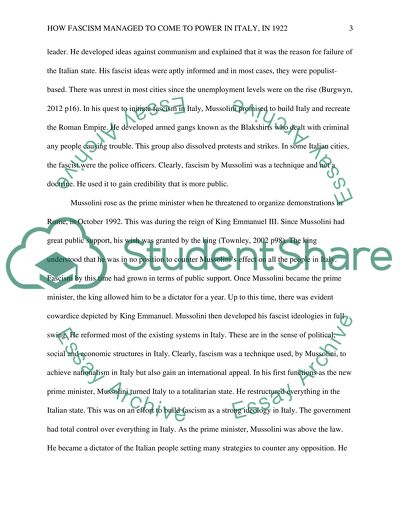Cite this document
(“How Fascism Managed To Come To Power in Italy, In 1922 Essay”, n.d.)
Retrieved from https://studentshare.org/history/1495618-how-fascism-managed-to-come-to-power-in-italy-in-1922
Retrieved from https://studentshare.org/history/1495618-how-fascism-managed-to-come-to-power-in-italy-in-1922
(How Fascism Managed To Come To Power in Italy, In 1922 Essay)
https://studentshare.org/history/1495618-how-fascism-managed-to-come-to-power-in-italy-in-1922.
https://studentshare.org/history/1495618-how-fascism-managed-to-come-to-power-in-italy-in-1922.
“How Fascism Managed To Come To Power in Italy, In 1922 Essay”, n.d. https://studentshare.org/history/1495618-how-fascism-managed-to-come-to-power-in-italy-in-1922.


